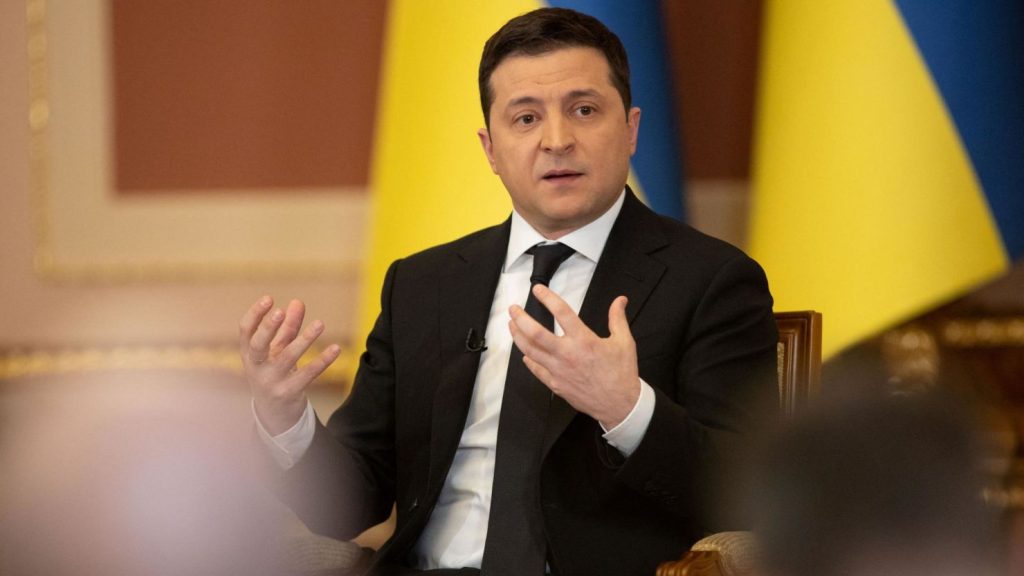Facebook Twitter (X) Instagram Somali Magazine - People's Magazine
Kyiv hopes to finalize an agreement granting US access to rare earth minerals in exchange for security support, while concerns grow over Trump’s engagement with Putin
The United States and Ukraine are in negotiations for a deal that would allow American companies access to Ukraine’s valuable rare earth minerals in exchange for security support. Ukrainian President Volodymyr Zelensky has expressed optimism about finalizing the agreement soon, possibly within days.

US Treasury Secretary Scott Bessent, the first high-ranking official from President Donald Trump’s administration to visit Kyiv, described the proposed deal as a strategic step that could help Ukraine secure long-term protection once the war with Russia ends. His visit signals that the conflict remains a priority for the Trump administration, though Washington’s overall stance on military aid to Ukraine under Trump remains unclear.
Trump has stated that he wants $500 billion worth of rare minerals from Ukraine, which are critical for high-tech industries, as part of any future agreement on US assistance. These minerals are essential components in products such as semiconductors, batteries, and advanced weaponry. Reports suggest that the idea for the minerals-for-security trade originated from within Ukraine itself, as officials sought to frame their appeal for support in terms that would align with Trump’s business-oriented approach to foreign relations.
Zelensky confirmed that the United States has presented Ukraine with a draft agreement, which Ukrainian officials are now reviewing. He expressed hope that the deal could be finalized during the upcoming Munich Security Conference, scheduled for February 14-16, where he is also expected to meet with US Vice President J.D. Vance.
Bessent emphasized that the proposed minerals deal
is part of a larger strategic vision that Trump has for ending the war. By deepening economic ties and securing American investment in Ukraine’s natural resources, the US hopes to create long-term stability and deterrence against future aggression. However, details of how the agreement would be structured, and whether it would come with direct military guarantees for Ukraine, remain unclear.
As Ukraine works to secure continued US support, concerns are growing about how Trump’s administration is handling relations with Russian President Vladimir Putin. Not long after Bessent’s visit to Kyiv, Trump announced on social media that he had a “lengthy and productive” phone call with Putin about ways to end the war. The exact content of their conversation was not disclosed, but the call has raised eyebrows among Ukrainian officials and Western allies who fear that Trump may be exploring terms that favor Russia’s position.
Zelensky, while welcoming negotiations,
has insisted that any discussion regarding US security guarantees for Ukraine must take place directly between him and Trump. He has repeatedly stressed that Ukraine cannot accept any peace agreement that leaves the country vulnerable to future Russian attacks.
Meanwhile, as diplomatic talks continue, Russia has intensified its attacks on Ukrainian cities and infrastructure. On Wednesday morning, a missile strike on Kyiv killed one person, while another attack in the central Poltava region targeted natural gas production facilities, killing at least seven people, including three children. The assault on Ukraine’s energy sector has increased pressure on Kyiv to secure more fuel imports from its Western allies.

Russia has increasingly focused its missile and drone attacks on Ukraine’s gas and energy infrastructure, seeking to weaken the country’s economy and limit its ability to sustain the war effort. Ukrainian officials have warned that without additional foreign assistance, energy shortages could become a significant problem, particularly as the conflict drags on.
The proposed minerals deal highlights how Ukraine is adjusting its diplomatic strategy to align with Trump’s transactional, business-first approach to foreign policy. Traditionally, visits to Kyiv from high-ranking US officials have been led by defense, security, or foreign policy representatives. The fact that Bessent, the Treasury Secretary, was the first official sent under Trump’s administration underscores the economic focus of this new relationship.
Bessent has also signaled support for increasing sanctions on Russia’s oil industry, a move initially launched by the Biden administration. While sanctions have impacted Russia’s economy, Moscow has continued to find alternative buyers for its oil, particularly in China and India.
Meanwhile, Russia has made its own position clear: it will not end the war unless Ukraine completely abandons its aspirations to join NATO and withdraws all its troops from four occupied regions that Moscow now claims as its own. Ukrainian officials have outright rejected these demands, calling them unacceptable and equivalent to surrender.
As the conflict enters yet another year with no clear resolution in sight, Ukraine’s leaders remain focused on securing long-term international support, balancing diplomatic negotiations with ongoing military challenges. The outcome of the minerals-for-security deal could play a key role in shaping the country’s future relations with the United States and its ability to resist future threats from Russia.

